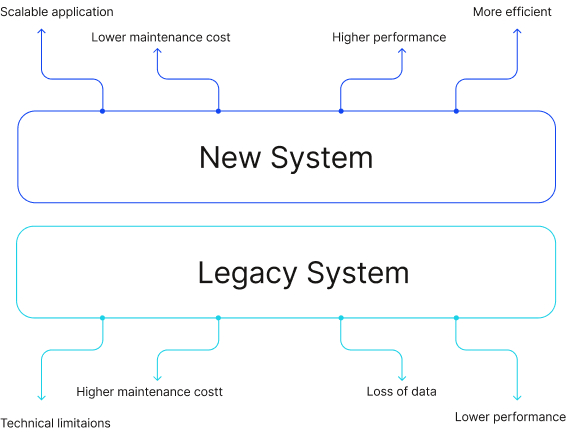Understanding Data Historians: Streamlining Data Storage and Analysis
Blog
4 Min Read
In today’s competitive manufacturing landscape, leveraging technology to enhance operations is more critical than ever. Process data historians have become an indispensable tool for manufacturing companies seeking to enhance their operations, improve quality, and drive efficiency. In this article, we’ll explore the immense value that time-series process data historians bring to manufacturing environments and how they contribute to Industry 4.0 initiatives. We’ll also discuss how expert system integrators like INS3 are leveraging these powerful tools to deliver tangible results for their customers.
The Power of Process Data Historians
Process data historians are specific software applications for collecting, storing and organizing huge amount of time series data which are produced by industrial processes. Modern manufacturing could not exist without these systems as they allow for analysis of data in real time, access to historical data and making of decisions based on data.
Key Benefits of Process Data Historians:
- Enhanced Process Visibility: Data historians give a clear picture of the manufacturing processes and this helps the operators or managers to oversee the production processes in real time.
- Quality Improvement: It means that by taking and analyzing process data, the manufacturers are able to detect that the quality is not met and then make corrections immediately. The application of advanced analytics helps to identify the main causes of defects and monitor them in real-time, which contributes to the stability of product quality and the minimisation of defects.
- Predictive Maintenance: This means that historical data can be used to plan for maintenance that will help to minimize on unnecessary downtimes and also increase the lifespan of equipment.
- Downtime Reduction: When faults are quickly identified and the means to rectify them effectively are also quickly available, then production losses are kept to a minimum and OEE is maximized.
- Regulatory Compliance: Data historians make it easy to meet the standards of the industry through the provision of original, verifiable data for the auditors.
- Batch and Efficiency Analysis: Pertinent and comprehensive records of batches of production and efficiency data enables constant enhancement of the process.
Leveraging Time-Series Data for Industry 4.0
The advent of Industry 4.0 has further amplified the importance of process data historians. These systems serve as the foundation for advanced analytics and AI/ML projects, enabling manufacturers to extract deeper insights from their operational data.
Data Historians in the Context of Industry 4.0:
- IoT Integration: The current data historians are compatible with the IoT devices, which enhances data gathering and analysis.
- Advanced Analytics: Historians’ time-series data offer the basic data for analytics tools that allow for predictive modeling and process improvement.
- Machine Learning and AI: Historical process data are used as training data to the machine learning models to identify the anomalous behavior, predictive maintenance, and decision-making.
- Digital Twin Technology: Data historians are involved in creating digital twin that is, a virtual replica of physical assets for purposes of emulation.
INS3: Expertise in Data Historian Implementation
As a premier system integrator, INS3 has established itself as an expert in implementing and leveraging data historian solutions for manufacturing clients. Our partnership with leading historian providers like Canary Labs, GE, Rockwell, and OSIsoft enables them to offer tailored solutions that address specific customer needs.
INS3's Approach to Data Historian Implementation:
- Customized Solutions: INS3 is a company that operates in collaboration with clients to develop and implement data historian solutions suited to the clients’ operations.
- Seamless Integration: Having experience in various historian platforms, INS3 can be easily integrated with the existing systems and data.
- Scalable Architecture: INS3 develops historian implementations which are scalable from a single site solution to an enterprise multi-facility solution.
- Data Analytics and Visualization: In addition to the use of basic trending capabilities, INS3 uses more advanced tools for historian data mining and analysis.
- Training and Support: INS3 offers extensive training and follow-up so clients get the most out of their data historian solutions.
Driving Results Through Data-Driven Insights
By combining their expertise in data historians with a deep understanding of manufacturing processes, INS3 has helped numerous clients achieve significant operational improvements.
Success Stories:
- Implementing predictive maintenance strategies that reduced unplanned downtime by 30%
- Optimizing batch processes to increase production efficiency by 15%
- Developing custom dashboards that improved real-time decision-making and reduced quality issues by 25%
- Facilitating regulatory compliance reporting, saving hundreds of staff hours annually
All in all, process data historians have emerged as a critical solution for the manufacturing industries that seek to survive in the age of Industry 4. 0. Thus, working with experienced system integrators such as INS3, manufacturers can get the most out of their operational data and guarantee sustainable development and competitiveness in the context of an industry that is steadily becoming more dependent on data.

Agile MES: The Key to Unlocking Smart Manufacturing Success
MES is a computerized system used in manufacturing operations to track and document the transformation of raw materials into finished goods. An MES system typically manages and monitors work orders, equipment, materials, and personnel on the shop floor. The system provides real-time visibility into production processes, helps optimize manufacturing operations, and improves the overall efficiency of the manufacturing process.

Understanding OEE: The Key to Manufacturing Efficiency
In today’s competitive manufacturing landscape, improving efficiency and productivity is crucial for businesses to remain competitive. One of the key metrics used to measure manufacturing efficiency is OEE or Overall Equipment Effectiveness. In this blog, we will take a closer look at OEE and its importance in manufacturing.

How to Effectively Conduct a Legacy System Integration
Legacy system integration can be a daunting task, but it’s a necessary one for many manufacturers that rely on outdated systems to run their business. Integrating legacy systems with modern technology can improve efficiency, streamline processes, and save time and money. However, it’s important to approach the integration process carefully and methodically to ensure success.
Share on :
Keep On Reading
Subscribe to Our Newsletter
Subscribe to our weekly newsletters to get updates regarding our new production, behind the scene process of our art creation and much more.
After submitting this form you will receive an e-mail with a confirmation link that you must click to complete your request. Detailed information on processing and cancellation can be found in our privacy policy.

